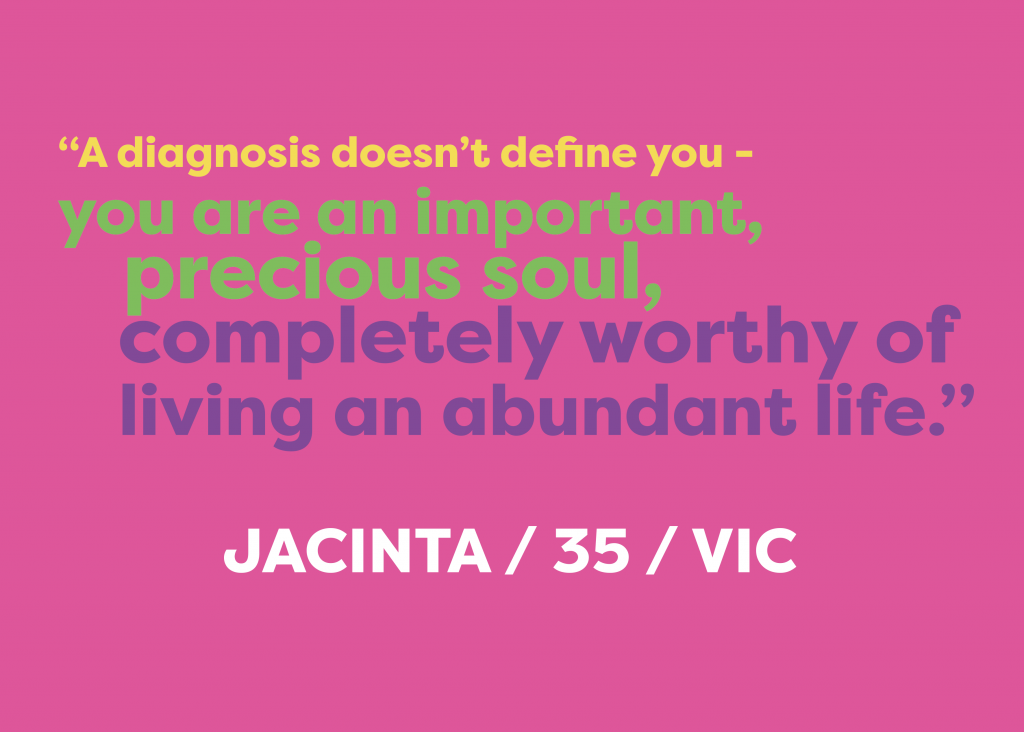jacinta is 35 years old, lives in vic and identifies as a person recovered from BPD.
What was your experience of receiving a diagnosis of BPD?
My diagnosis wasn’t given directly to me but had been mentioned to my carer by numerous mental health professionals. I felt the diagnosis was used to deny crisis services to me. A psychiatrist later formally confirmed my BPD diagnosis after I advocated for myself. Withholding the diagnosis from me made me think negatively towards the diagnostic label and created self-stigma. I would have benefited from more trust and openness from my mental health services.
What would you like people newly experienced with BPD to know?
BPD is treatable. You can recover. Seek specialised services and resources to support you along your journey. A diagnosis doesn’t define you - you are an important, precious soul, completely worthy of living an abundant life, and you are beautiful and wonderfully unique.
What did clinicians and mental health professionals do well to support you?
The most important and crucial thing my clinician did was calmly, patiently, and expertly tolerate all of my challenging behaviours. She held space for me, she never over-reacted or punished me. She had faith and hope in me and supported me to find how to use my individual strengths and natural curiosity to lower the walls I had needed to build up around myself to feel safe.
What could clinicians and mental health professionals have done better to help you?
Crisis management clinicians could have helped better by compassionate understanding and being trained to work with specific BPD experiences. I needed them to listen, without judgment, without agenda, and accept my distress as genuine. I needed them to be able to provide a safe space for me where I felt respected.
What kind of psychological treatments worked well for you?
I undertook some group-based CBT, DBT, and Schema Therapy. I found individual psychotherapy with a BPD-experienced clinician to be most helpful and this ultimately led to my recovery.
What other things have supported you to live well?
Adopting a balanced daily routine, eating well, practicing good sleep hygiene, regular light exercise, strengthening my relationships, study, and practicing mindfulness.
Do you have any tips or tricks for managing distress or strong emotions you would like to share?
I like to use principles of Observation, Objectivity, and Openness contained in “Mindsight Theory” (Seigel, 2010) towards interpersonal situations, and focus on the grounding/mindfulness skills within DBT (Linehan, 1987) when I am really overwhelmed.
What advice would you give to friends/family supporting someone with a diagnosis of BPD?
Supporting someone with BPD can be very challenging at times. Please learn about BPD from expert sources so you understand your friend/family member’s diagnosis. Also, be kind to yourself - you’re doing your best. And surround yourself with supportive people too - you also need to be cared for and supported.
What are a few things you thought you might not have been able to do but you did anyway?!
I am completing a diploma, working with two different employers and managing home schooling for my children.
